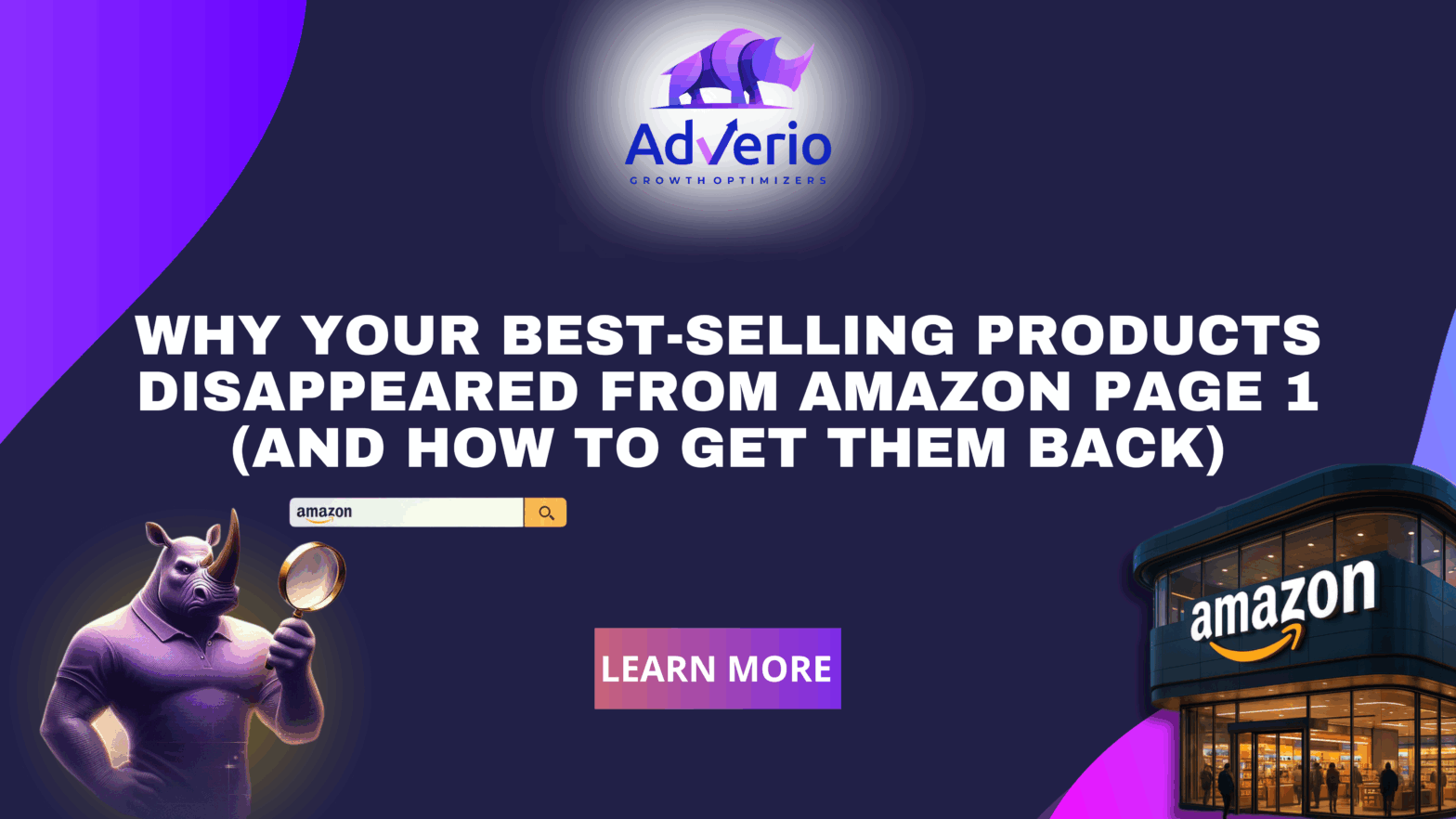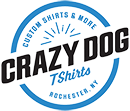Your hero SKU was dominating page one last quarter. This quarter? It vanished from the first page entirely. Rankings gone. Visibility destroyed. Revenue hemorrhaging.
When a top-performing product falls off Amazon’s page one, it’s not just an ego bruise it’s a direct assault on your bottom line. Most brands panic and dump more budget into PPC ads, but that’s applying a band-aid to arterial bleeding.
This tactical deep-dive reveals why Amazon rankings are crashing in 2025, what’s changed with the algorithm, and the five specific levers marketplace operators can pull to reclaim page-one dominance.
The New Reality: Why Top SKUs Are Losing Page 1 Rankings in 2025
Table of Contents
Amazon’s Algorithm Evolution: From A9 to A10
Amazon’s legacy A9 algorithm rewarded raw sales velocity and keyword stuffing. Sell more units, cram in keywords, and brute-force your way up the rankings. Those days are dead.
Today’s search algorithm (commonly called A10) prioritizes:
- Organic engagement metrics over pure sales volume
- External traffic quality over internal PPC spend
- Holistic customer experience over keyword manipulation
The algorithm now rewards comprehensive performance while punishing one-dimensional strategies. If your ranking approach hasn’t evolved beyond the A9 playbook, previously stable SKUs will continue sliding.
Stricter Listing Standards & AI-Powered Compliance
Amazon has adopted Walmart’s enforcement philosophy: mediocre listings get buried. AI-powered compliance systems now scan for:
- Poor content quality and missing information
- Policy violations and incomplete product data
- Substandard images and inadequate descriptions
When competitors build richer, more compliant listings, the algorithm swaps them into your former position. In 2025, retail readiness isn’t optional, it’s the baseline for maintaining visibility.
The External Traffic Arms Race
Amazon SEO isn’t exclusive to established brands anymore. Savvy competitors are driving qualified traffic from TikTok, Instagram, Google, and other external sources. Amazon rewards products that bring outside shoppers with higher organic placement.
While you’re focusing solely on internal optimization, competitors are:
- Running influencer campaigns directing traffic to Amazon
- Launching coordinated social media campaigns
- Investing in Google Ads targeting buyer-intent keywords
The result? Your secure page-one position gets hijacked by competitors riding external traffic momentum you didn’t anticipate.
Algorithmic Penalties for Poor Customer Experience
Amazon’s mission centers on shopper satisfaction, and the algorithm monitors customer engagement signals more aggressively than ever. Performance indicators that trigger ranking penalties include:
- Review degradation: Declining star ratings or unresolved Q&A questions
- Return rate spikes: Higher-than-average product returns
- Engagement metrics: Reduced time spent on product pages
- Fulfillment issues: Delivery delays or inaccurate descriptions
Amazon’s AI detects friction in the buying experience and demotes products that create unhappy customers. A decline in customer experience metrics directly correlates with ranking drops.
Bottom line: The traditional shortcuts no longer work. Page-one ranking now requires balanced execution across content optimization, strategic advertising, and customer satisfaction management.
The Hidden Cost of Losing Page 1 Visibility
Before diving into solutions, let’s quantify the financial impact. Amazon shopping behavior research reveals:
- 70%+ of shoppers never scroll past page one
- The #1 organic result captures ~35% of all clicks
- Top three listings generate ~64% of total clicks
Falling from page one to page two is equivalent to falling off a revenue cliff.
The Profitability Erosion Cycle
Lost organic rankings don’t just eliminate sales, they destroy profit margins. To compensate for lost organic volume, brands typically increase PPC spend to chase the same customers they previously acquired for free.
The financial cascade looks like this:
-
- Organic sales disappear (high-margin revenue)
- PPC costs spike to maintain volume (low-margin revenue)
- ACOS deteriorates as ad spend increases
- Profit margins compress across the SKU portfolio
The Compounding Competitive Disadvantage
While your SKU languishes on page two, competitors aren’t just capturing immediate sales they’re building review momentum and customer loyalty that compounds over time. Each day off page one:
- Strengthens competitor positions with increased sales history
- Builds their review velocity while yours stagnates
- Makes future recovery more expensive as the ranking gap widens
Every day of delayed action increases the cost and complexity of eventual recovery.
5 Strategic Levers to Reclaim Amazon Page 1 Rankings
Amazon’s algorithm complexity has increased, but it still responds to specific performance levers. Success requires executing each lever at an operational level with attention to detail, while orchestrating them in harmony.
Lever 1: Content Optimization & Keyword Relevance
The Foundation: Relevance remains the entry price for ranking consideration. If Amazon’s AI doesn’t identify your listing as the optimal answer to search queries, page-one restoration is impossible.
Optimization Priorities:
- Title optimization: Align with high-intent search terms shoppers actually use
- Bullet point relevance: Address specific customer pain points and benefits; not just the features
- Backend keyword strategy: Maximize search term coverage without keyword stuffing. Ensure usage of Alt-Text Fields.
- Content richness: Deploy A+ Content modules, videos, and comprehensive FAQ sections
Advanced Strategy: Amazon now explicitly prioritizes listings with rich, comprehensive content that matches contextual, intent based searches and thoroughly answers shopper questions. This signals algorithmic relevance while improving conversion rates.
Action Framework: Implement quarterly content audits, including Rufus and Q&A section audits to maintain alignment with evolving search behavior and algorithmic preferences.
Lever 2: Click-Through Rate (CTR) Optimization
The Reality: Amazon ranking contains elements of a popularity contest. When shoppers consistently skip your listing for competitors, the algorithm notices and adjusts accordingly.
CTR Enhancement Tactics:
Main Image Optimization:
- High-resolution, professionally shot hero images
- Clear product differentiation from competitor offerings
- Add Compelling visual hierarchy, otherwise known as “eye candy” that draws attention
Title & Metadata Strategy:
- Lead with primary value propositions
- Eliminate filler words and unnecessary characters
- Integrate urgency-driven language where appropriate
Social Proof Amplification:
- Strategic coupon deployment for urgency creation
- Active review generation and negative review management
- Badge optimization (Amazon’s Choice, Best Seller, etc.)
Case Study Example: An electronics brand recovered from a 22% CTR decline by updating their main image and adding benefit-driven language to their title, ultimately regaining lost rankings within 3 weeks.
Lever 3: Conversion Rate & Retail Readiness
The Standard: Amazon rewards listings that convert browsers into buyers. If your product detail page converts below 20%, ranking recovery becomes statistically unlikely.
Conversion Optimization Checklist:
- Visual content: Minimum 6 high-quality images plus product video
- Review management: Maintain 4.0+ star average with recent positive reviews
- Customer education: Proactively address hesitations through FAQ and Q&A management
- Competitive differentiation: Deploy A+ Content comparison charts and buyer’s guides
Pro Strategy: Implement comparison charts or comprehensive buyer’s guides within A+ Content to prevent shoppers from bouncing to competitor listings during their research phase.
Lever 4: Strategic Advertising & Promotional Catalysts
The Framework: PPC advertising functions as a strategic catalyst, not a ranking solution. It cannot fix poor content or low conversion rates, but it can amplify existing strengths.
Strategic Advertising Applications:
Keyword Recovery:
- Deploy aggressive Sponsored Product bids for lost keyword visibility
- Target exact match campaigns for previously ranking terms
- Implement broad match campaigns for keyword expansion
Brand Protection:
- Launch Sponsored Brand campaigns for brand name searches
- Defend branded keywords from competitor encroachment
- Maintain consistent brand messaging across ad formats
Promotional Acceleration:
- Coordinate Coupons & Promotions with ranking recovery efforts
- Deploy Lightning or 7-day deals to create urgency and volume spikes
- Time promotions with external traffic campaigns
Strategic Mindset: Treat advertising spend as fuel for organic momentum generation, not as a permanent revenue crutch.
Lever 5: External Traffic & Off-Amazon Amplification
The Opportunity: Amazon’s algorithm heavily weights external traffic as a trust and traction signal. Products that bring qualified shoppers from outside Amazon receive preferential organic placement.
External Traffic Strategies:
Influencer Partnerships:
- Micro-influencer campaigns driving direct Amazon clicks
- Product placement in relevant content categories
- Attribution tracking through Amazon’s Brand Referral Bonus program
Search Engine Marketing:
- Google Ads targeting buyer-intent keywords
- SEO content marketing driving organic Google traffic
- YouTube product demonstrations linking to Amazon listings
Owned Media Activation:
- Email list campaigns directing subscribers to Amazon
- Social media content with Amazon Deeplinks
- Blog content optimized for Amazon product discovery
The Multiplier Effect: The more external traffic Amazon detects coming to your listings, the more favorably the algorithm treats your organic rankings across all keywords.
Diagnostic Framework: Identifying Your Ranking Recovery Path
When a high-performing SKU loses page-one visibility, systematic diagnosis across these five levers typically reveals the root cause:
- Content audit: Is your listing content comprehensive and keyword-optimized?
- CTR analysis: Are shoppers clicking your listing over competitors?
- Conversion assessment: Are clicks converting to purchases at competitive rates?
- Ad performance review: Is your PPC strategy supporting or competing with organic goals?
- External traffic evaluation: Are you bringing qualified outside traffic to Amazon?
Winning brands in 2025 don’t cherry-pick one or two levers – they execute all five systematically and consistently.
The Path Forward: Systematic Ranking Recovery
Maintaining page-one visibility in 2025 requires more than reactive fixes it demands proactive, systematic execution across all ranking factors.
The five levers outlined above provide the strategic framework for ranking recovery, but implementation complexity often overwhelms internal teams managing large SKU portfolios across multiple marketplaces.
The Strategic Question: Will you continue reacting to algorithmic changes, or will you build systematic processes that maintain page-one dominance regardless of how Amazon’s algorithm evolves?
The marketplace landscape will continue changing, but brands with systematic approaches to content optimization, customer experience management, and integrated traffic strategies will consistently outperform competitors still relying on outdated tactics.
Ready to Reclaim Your Page-One Rankings?
Adverio specializes in diagnosing ranking drops and executing recovery frameworks for 7–8 figure marketplace brands with large catalogs. If your hero SKUs are stalling, slipping, or stuck, we’ll identify the exact levers to fix it fast.
Book your free “Simplify & Scale” strategy session now. We’ll audit your listings, identify ranking gaps, and map a clear, custom recovery plan designed to restore visibility, velocity, and profitable growth. No guesswork. No generic advice. Just operator-level strategy that works.




























